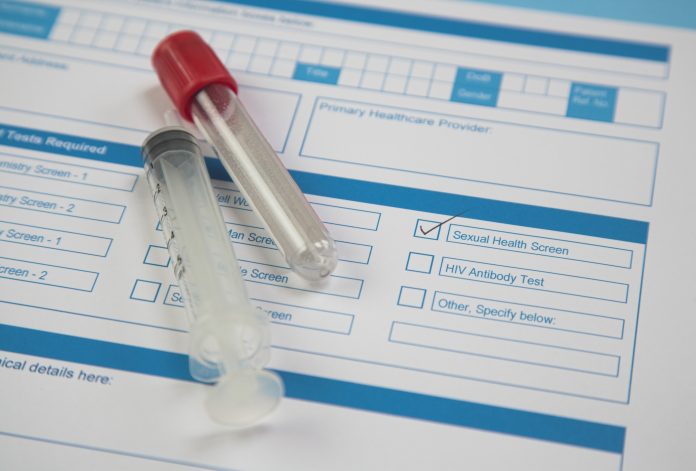For The Health Improvement Project for Teens (HIPTeens), our purpose is simple: Helping teens, including those with intellectual/developmental disabilities, reach their potential through robust research and practical application reducing sexual risk and building resilience
HIPTeens has been recognised for its documented long-term effectiveness in reducing the number of sexual partners, episodes of vaginal intercourse, and acts of unprotected sex, and reducing pregnancy rates. It also increased secondary sexual abstinence in teens who participated in HIPTeens.
HIPTEENS, a CDC/DHHS-recognised evidence-based sexual risk reduction intervention, has been adapted for adolescents with intellectual disabilities to reduce systemic barriers that create disparities in sexual health interventions.
Adolescents with intellectual or developmental disabilities (I/DD) need developmentally appropriate, adaptive sexual risk reduction interventions to prevent negative health outcomes like sexually transmitted infections (STIs), HIV, and unplanned pregnancy. This is especially important as these teens: (1) face much higher rates of sexual coercion increasing risk exposure, and (2) are often not included in school or community-based programs that address these topics. Universal Design for Learning (UDL) enhanced intervention supplements increase access for I/DD participants to the Health Improvement Project for Teens (HIPTEENS), an evidence-based CDC- and DHHS-recognised sexual risk reduction intervention. Integrating UDL adaptive curriculum content, concepts and approaches to the mastery of skills can decrease sexual health disparities within this vulnerable population.

The UDL framework prioritises multiple means of: (a) engaging the learner to facilitate the “why” of learning, (b) representation to facilitate the recognition of the “what” of learning, and (c) action and expression to facilitate the “how” of learning (CAST, 2018). We know that if we enhance accessibility to sexual health information and positive behavioural skill-building for teens with intellectual disabilities, we are proactively recognising and responding to the needs of all learners which, in turn, serves to reduce systemic barriers that result in inequitable learning opportunities and outcomes.
CAST (2018). Universal Design for Learning Guidelines version 2.2. Retrieved from http://udlguidelines.cast.org.
HIPTeens strives to educate, empower, and improve the health and psychosocial potential of participants through increased knowledge about risk prevention strategies, emphasis on building motivation to change behaviours, activities designed to identify and promote risk reduction behaviours, and skill-building exercises to develop a sense of mastering communication, decision making and assertiveness.
Critical components of HIPTeens
- Culturally sensitive.
- Theoretically driven.
- Medically accurate.
- Attention to trauma experiences.
- Engaging and interactive.
- Focused on healthy relationships and behaviour choices.
Benefits
- Evidence-based intervention recognised by the CDC and U.S. Dept HHS.
- Tailored training provided for this brief, manualised program with fidelity assessments.
- Implementable across diverse settings and tested across races and ethnicities.
- Intervention supplements increase access for those with learning and intellectual disabilities.
What makes HIPTeens an evidence-based intervention (CDC & HHS)?
Developed and tested through rigorous longitudinal scientific studies, HIPTeens was recognised by the CDC and U.S. DHHS as an exemplary evidence-based HIV/STI and teen pregnancy prevention intervention. Now expanded beyond girls 15-19 to meet the broader needs of adolescents and emerging adults, it is being implemented with teens of diverse backgrounds, ages and genders in teen pregnancy prevention programs, community agencies, youth organisations and educational and healthcare settings. This easy to implement and completely manualised positive youth development program significantly improved long-term multiple risk behaviours including:
- Reduced acts of unprotected
- vaginal sex.
- Reduced number of sex partners.
- Reduced rates of unintended
- Reduced total number of sex episodes.
- Increased sexual abstinence.
Who can use this type of intervention programme?
If you are ready to make a difference in the lives of young people, then you need HIPTeens. If you want to provide risk reduction, resiliency-building programs that work, you can be certified to facilitate HIPTeens programs.
Can HIPTeens be tailored for different populations?
The program was originally tested and demonstrated effective results with adolescent girls, but has flexibility for adaptations. HIPTeens is being successfully implemented across the U.S. and globally with older and younger teens and emerging adults of both genders.
HIPTeens is also being implemented with refugee girls from multiple counties and Afro-Caribbean diasporic communities.
The sessions within the HIPTeens programme
Engaging interactively appropriate strategies that target motivation to reduce risk behaviours and behavioural skills that build resilience, communication and negotiation, healthy decision choices and goal setting using the following:
- Interactive group activities.
- Role play.
The intervention is completely manualised with step by step instructions including:
- Length of activities.
- Prompts to facilitate discussion.
- Detailed instructions of components.
What are the core components of HIPTeens?
Four small-group sessions of 120 minutes each and we also provide materials for 90-minute booster sessions (reunions). Sessions can be tailored for eight one-hour time periods. HIPTeens emphasises healthy relationships and behaviour choices with a positive view of teens’ personal futures.
- Self-empowerment from goal setting and identifying values.
- Assertive communication and negotiation skills with partners, parents, peers and adults.
- Identification of risk situations and triggers to unhealthy choices.
- Developing a menu of healthy choices to reduce risk.
- Provide medically accurate information to enhance motivation to change.











